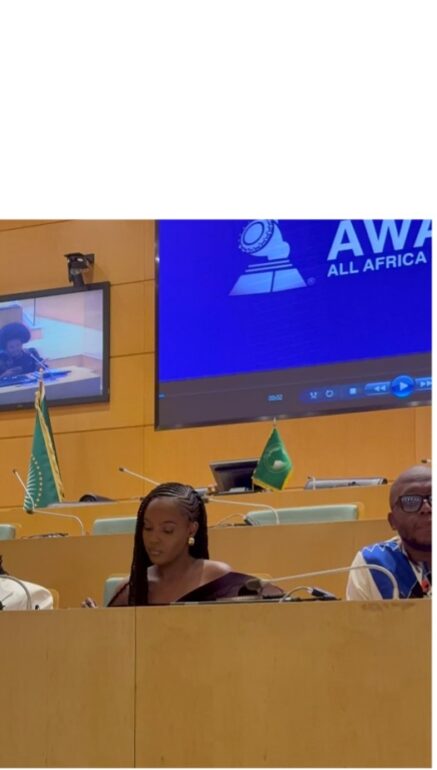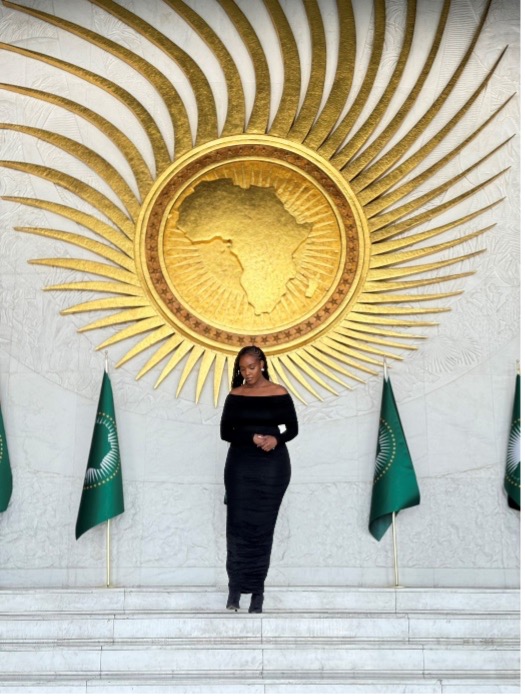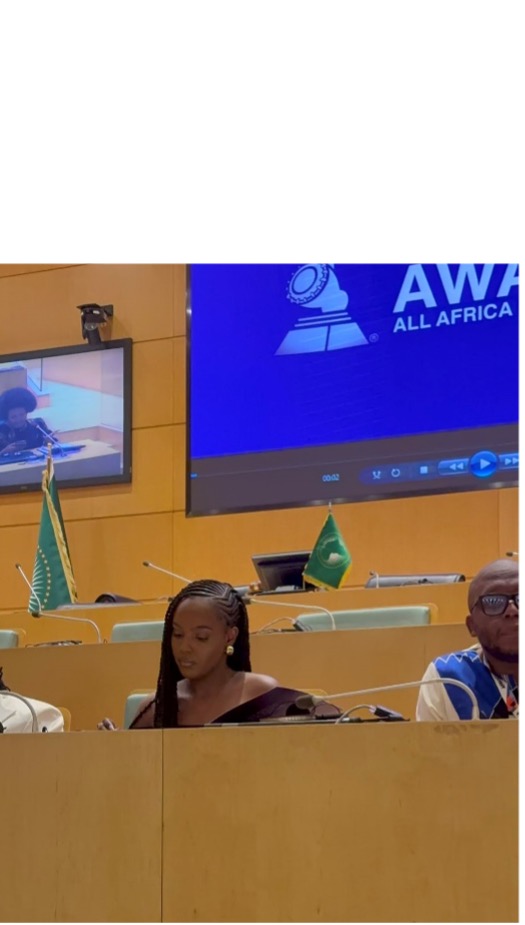Kenyan singer-songwriter Nikita Kering stepped beyond the stage and into policy advocacy on May 13, 2025, as she represented Kenyan musicians at the All Africa Music Awards (AFRIMA) Stakeholders’ Conference held at the African Union (AU) Headquarters in Addis Ababa, Ethiopia. The 23-year-old artist, known for her soulful fusion of R&B and Afro-pop, joined artists and policymakers from across the continent to spotlight the growing concern over the exploitation of African creatives, particularly through unfair compensation by Collective Management Organizations (CMOs) and digital streaming platforms.
Sharing a photo from a conference room at the AU compound, Kering posted on X: “Today, I represent Kenyan artists at the African Union HQ to address the unfair pay from CMOs and digital platforms—and to push for AU support in protecting our intellectual property. It is an honor.”

The conference, organized by the AU’s Economic, Social and Cultural Council (ECOSOCC) in partnership with AFRIMA, aimed to initiate continental reforms that protect African artists’ rights and ensure fair royalties. Kering’s invitation to speak reflected her growing stature not just as a musician, but as a voice for artist empowerment in Kenya and beyond.
Born in Nairobi on February 26, 2002, Kering began her music journey early, performing gospel songs at school concerts by age 10. A standout moment came in 2019 when she was selected for Mr Eazi’s EmPawa100 program, where she emerged a finalist and won $3,000 to fund her breakout hit Tragedy. Her 2022 EP The Other Side cemented her status as a reflective, genre-blending artist capable of turning heartbreak and introspection into powerful anthems.

At the AU event, Kering emphasized the structural challenges faced by Kenyan artists, many of whom are forced to rely on foreign royalty systems like BMI, ASCAP, Spotify, and Apple Music due to weak local infrastructure. She called for the African Union to strengthen intellectual property protections and overhaul royalty distribution systems to empower creatives across the continent.
Her appearance marked a turning point in the push to elevate artists’ rights from national to continental discourse, aligning cultural policy with the economic realities faced by African musicians in a rapidly digitizing industry.As continental bodies increasingly turn to younger voices for insight into the evolving music economy, Nikita Kering has proven she’s more than just a rising star—she’s an advocate shaping the future of African music from both the mic and the meeting room.






